12 Angry Men (1957)
“He’s a common, ignorant slob. He don’t even speak good English.”
|
Synopsis: |
|
Genres, Themes, Actors, and Directors:
Response to Peary’s Review: I’m a huge fan of this surprisingly gripping nearly-one-room drama, which I re-watch periodically and am drawn into time and again. Fonda’s performance is outstanding, but so are those of all the other (mostly unknown) actors. Meanwhile, it’s clear how much thought and effort were put into every minute of the production, from acting to staging; as noted in TCM’s article:
While watching this film, we genuinely feel we’re being taken on a carefully calibrated ride across both the challenges and the benefits of our very-human justice system. As noted by James Kendrick in his review for Q Network, “The resistance of the other jurors to discussing the seemingly open-and-shut case is a compelling means of depicting how the system works only when those involved accept the moral weight of their roles.” DVD Savant adds that: “On one level the jury isn’t much better than a mob — most of these men are quite willing to go along with the perceived majority opinion without really thinking about the case. Only when challenged to actually apply themselves to their appointed task do the sensitive thinkers advance their personal opinions.” Note: The opening establishing shot reminds me both visually and aurally of Frederick Wiseman’s documentaries — though Wiseman would linger longer and add several more establishing shots before moving into “the action”. Redeeming Qualities and Moments:
Must See? Categories
(Listed in 1001 Movies You Must See Before You Die) Links: |
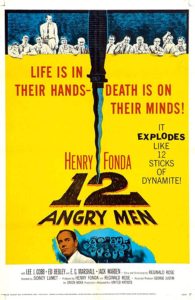
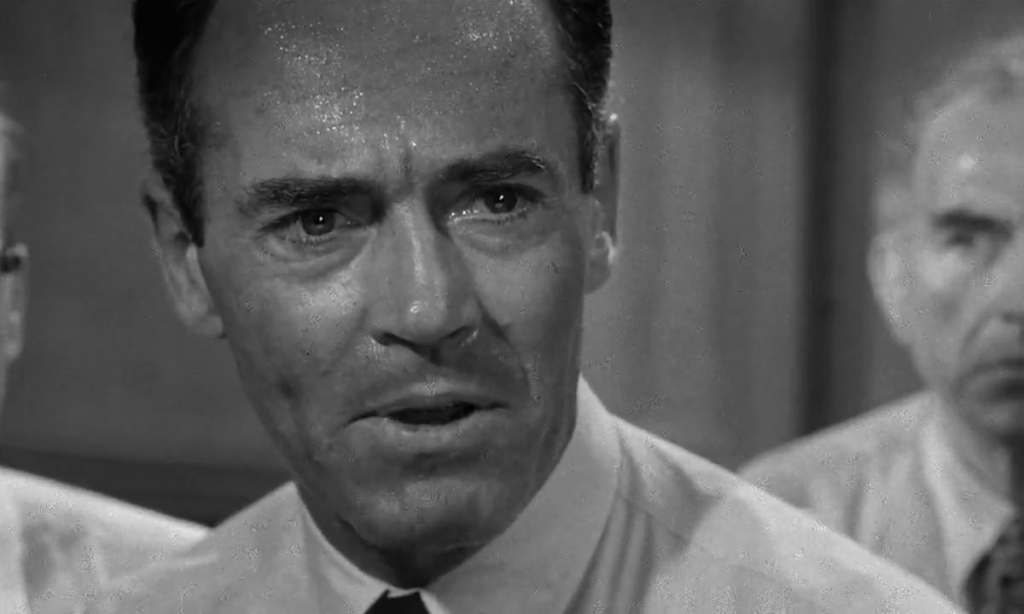
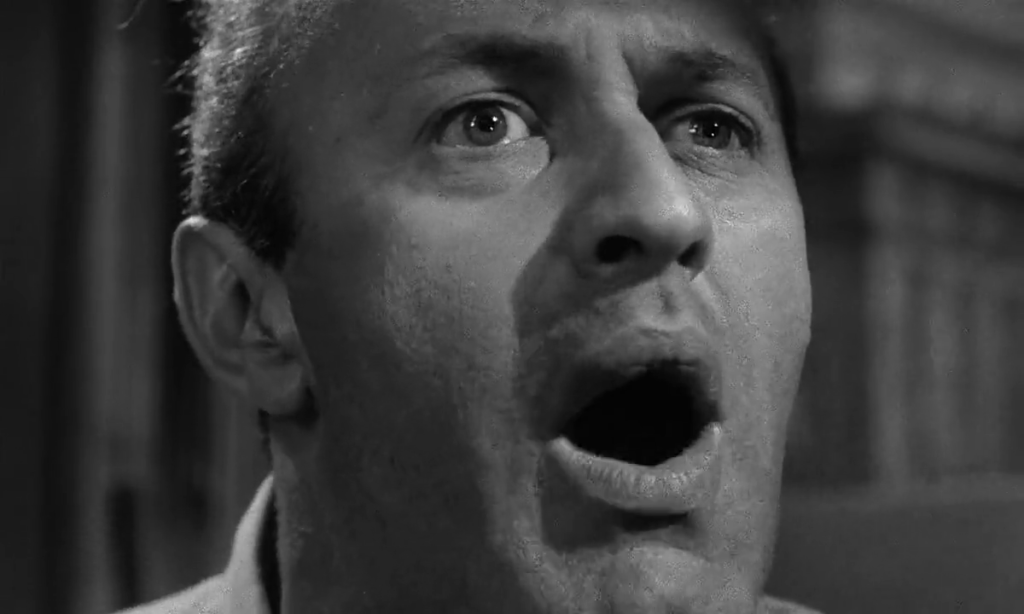
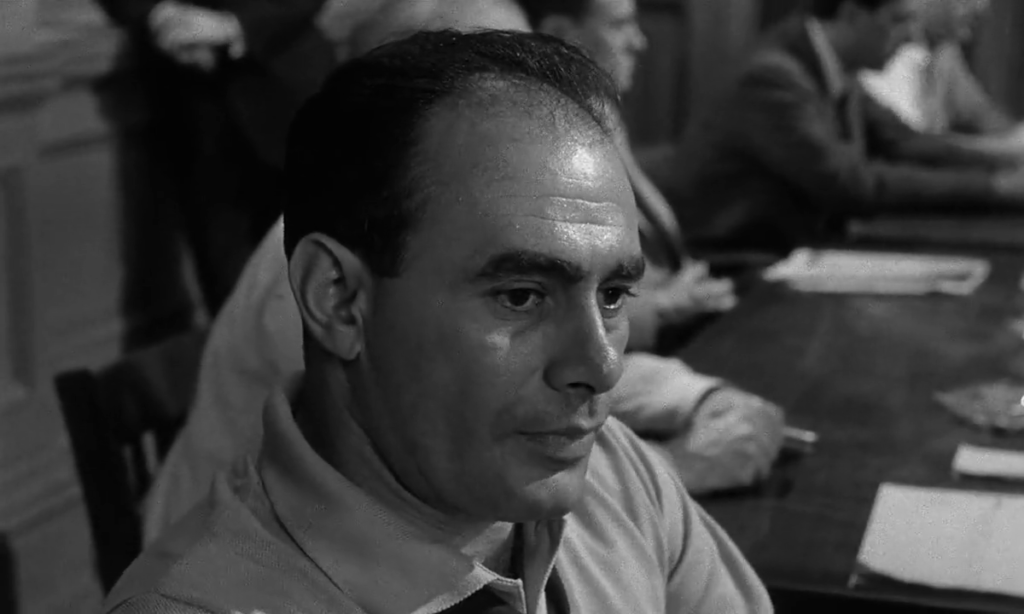
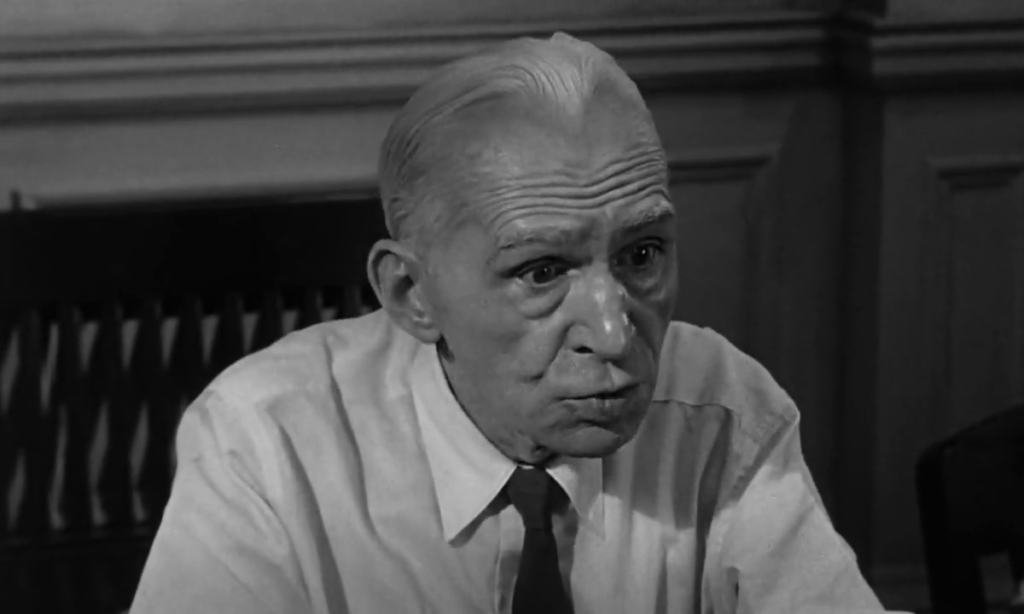
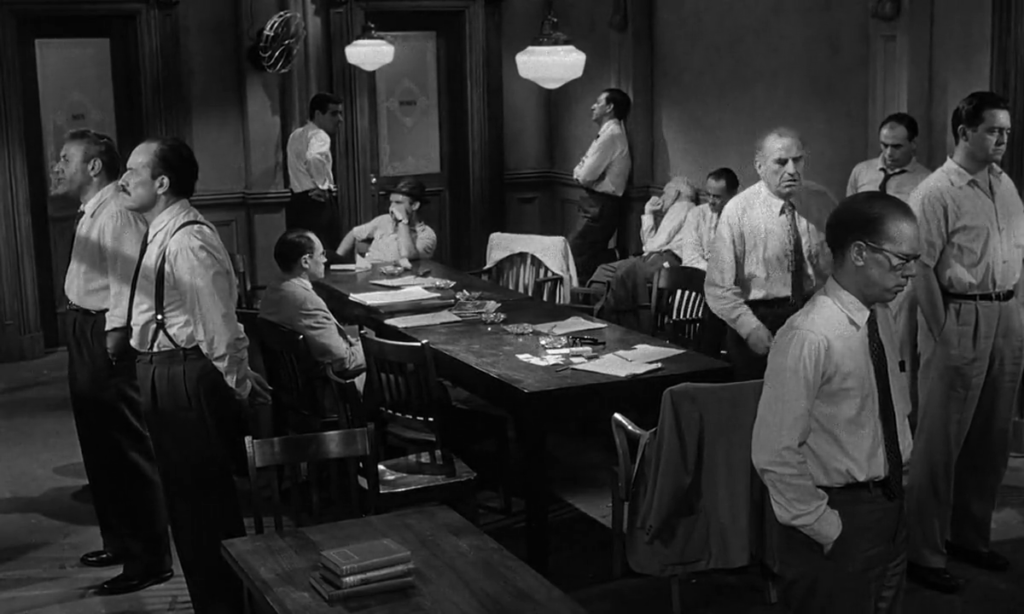
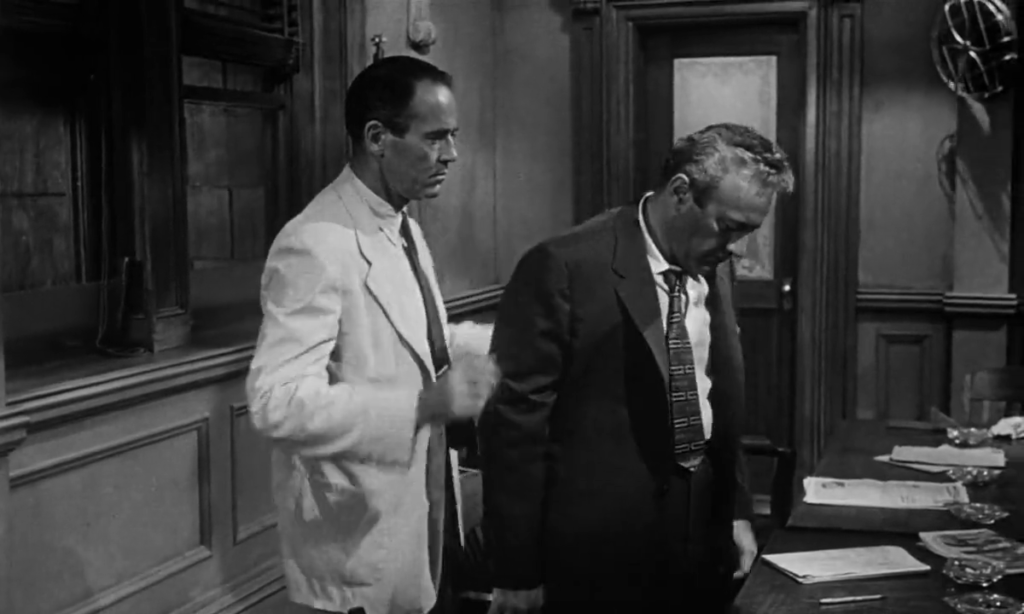
2 thoughts on “12 Angry Men (1957)”
A no-brainer must-see, as (easily) one of the best films of the 1950s; and for its ensemble acting, its camerawork, its script and Lumet’s direction.
Another one of those films that can simply pull me in when I begin watching it – and it holds firm throughout. I haven’t revisited it a lot but, by now, I’ve probably seen it about 5 times over the years.
It can be seen from a removed viewpoint (those observing can see it as merely a study of a jury) or as something pointed toward the audience (as we begin to ask ourselves the questions these jurors ask of each other: what, in life, do we base our judgments of people and their actions on? – objectivity or prejudice?).
Rose’s script is crackerjack and tight as a drum so the film might have been just as effective without the concerted effort that Lumet and Kaufman put into elevating a static setting to an electric one. But the film and the cast do benefit from the extra effort: it’s not too little and not too much; this is not a showy piece.
I believe this is the only film that Fonda ever co-produced. It would seem that the subtle use of the theme of prejudice was something that resonated with the actor. Still, his performance (as are all of the performances) is appropriately subservient to the material.
Side note: In 1991, a sort of parody of this film was produced in Japan – called ’12 Gentle Japanese’… in which – at the film’s opening – 11 jurors held a verdict of ‘innocent’ and one wanted to cast a vote ‘guilty’. At the time, Japan did not have a jury system (though it did have one from 1928 to 1943.) Interestingly (and perhaps sparked by the 1991 film), Japan brought the jury system back for criminal cases in 2009.
A riveting drama and a true classic: must see.